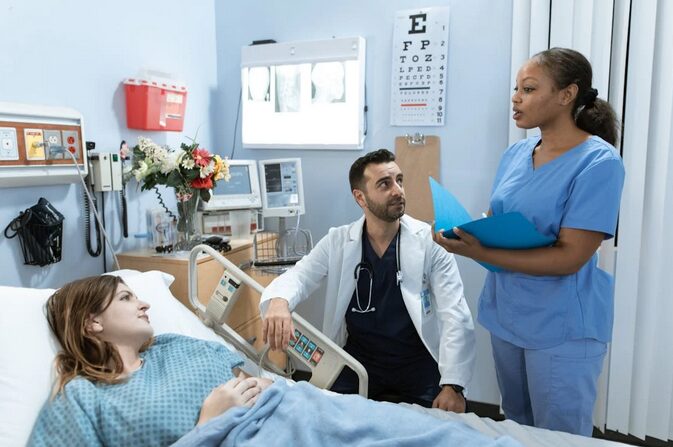Healthcare settings are changing rapidly. Hospitals and clinics are handling more patients, more emergencies, and more complex conditions every day. Because of this, the need for trained staff who can respond quickly and correctly is rising. ACLS (Advanced Cardiovascular Life Support) certification has become more than a resume booster. It’s a necessity in many clinical environments. This shift reflects how critical it is to have professionals who are ready for cardiac and other life-threatening emergencies. To keep up with such demand, online acls recertification is helping current staff stay compliant and up to date without stepping away from their roles.
They Meet the Patient’s Safety Standards

Patient safety is a top priority in every hospital and clinic. Organizations want to ensure every staff member can respond effectively when seconds count. ACLS training prepares healthcare providers to manage emergencies like cardiac arrest, stroke, or shock. These events can happen without warning. When they do, having someone who is ACLS-certified nearby often makes a direct difference in patient survival. That’s why more employers are requiring this certification, even for roles that didn’t need it before.
Hospital Expectations Are Changing
It’s not just the emergency room anymore. Many hospitals now expect ACLS certification for positions in telemetry, surgical units, intensive care, and step-down areas. Even some medical-surgical floors prefer applicants with ACLS. These units handle patients at risk of deterioration. Employers want to ensure their teams can act fast. As care settings grow more acute, hospitals are updating their hiring practices to reflect that reality. ACLS-certified professionals are now more likely to be interviewed, selected, and promoted.
Outpatient and Clinic Environments Feel the Shift

Clinics are seeing more complex cases than they did in the past. Outpatient centers now perform procedures that once required inpatient stays. With that comes risk. If a patient crashes during a stress test or a procedure, the response must be immediate. That’s why ACLS-trained staff are becoming essential, even in outpatient settings. Urgent care clinics, ambulatory surgical centers, and specialty offices are all beginning to prioritize or require ACLS certification for clinical staff.
They Raise the Bar for New Graduates
New healthcare graduates are entering a market with higher expectations. Hospitals and clinics want people who are ready to work, not just learn. ACLS certification shows that a candidate has already invested time in emergency care training. It makes them more appealing right out of school. For new nurses, respiratory therapists, and paramedics, having ACLS before applying may improve job prospects and reduce orientation time. It’s become part of what employers now consider a well-prepared candidate.
They Support Team-Based Emergency Response

ACLS isn’t just about individual skill. It trains people to work together during critical situations. Hospitals rely on code teams, rapid response teams, and unit-based emergency drills. Every person in the room needs to understand their role. With ACLS-certified staff, response times are faster and communication is clearer. This coordination reduces errors and improves outcomes. Clinics and hospitals know this. That’s why they’re placing greater value on team members who’ve completed ACLS training.
The demand for ACLS-certified professionals in hospitals and clinics is growing, and it’s not slowing down. As patient needs become more urgent and environments more complex, healthcare employers are turning to staff who are trained, prepared, and capable under pressure. ACLS certification proves that readiness. It’s becoming a standard expectation across various settings, not just a credential for emergencies. If you’re entering the healthcare field or looking to advance, getting ACLS-certified offers a clear path toward better opportunities and long-term career success.…






 One of the most critical aspects of creating an effective hiring process is to write a job description that accurately reflects the position you are looking to fill. The job description should include a detailed list of the duties and responsibilities associated with the role and the required qualifications. If your company has specific values or a mission statement, be sure to include that in the job description. This will help you attract candidates who fit your company culture well.
One of the most critical aspects of creating an effective hiring process is to write a job description that accurately reflects the position you are looking to fill. The job description should include a detailed list of the duties and responsibilities associated with the role and the required qualifications. If your company has specific values or a mission statement, be sure to include that in the job description. This will help you attract candidates who fit your company culture well. Once you have interviewed all candidates, it is time to conduct
Once you have interviewed all candidates, it is time to conduct